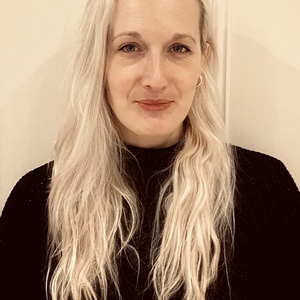Inconvenient truths
While the industry talks a good game around inclusion of those with disabilities, the reality is another matter.
Like most if not all people who work in publishing, my passion for books has been a constant throughout my life. My feelings about the book industry—within which I have now worked for 17 years—are considerably more ambivalent: a fact that often comes as a surprise when I admit it. “But it’s such a nice industry!” is the usual response. And it is, if you adhere to a certain model of publishing employee. Ease within the publishing industry, and enjoyment of it, is a privilege; one that depends heavily on your race, class, sexuality, gender—and whether you live with a disability.
Publishing is by no means unique in being an industry that fails to support employees with physical and mental disabilities properly. But where we arguably find ourselves alone is in the belief that ours is an unusually friendly and caring industry. There is an exceptionalism at play here, one that too often results in the belief that, “that wouldn’t happen here”, when discrimination of any kind is referred to; and in the consequent negating of the lived experiences of people of colour, LGBTQ+, working-class and differently abled people.
Disabled employees should not have to feel grateful to companies for making it possible to work within publishing
Diagnosed with fibromyalgia at the age of 15, I was physically unable to write more than a few scrawled lines from that age onwards, having to dictate all my exams from GCSEs through to my degree finals. Over the subsequent years, in addition to problems writing, I have occasionally found my ability to walk impeded, and have to manage other symptoms associated with the condition, such as brain fog, fatigue and near-constant muscle pain.
As anyone who lives with chronic illness knows, there are high levels of co-morbidity between certain physical and mental illnesses, and I experienced depression from an even younger age, which bloomed into full-blown major depression, dominating my life for the worst part of 20 years. Now aged 41, I am lucky to be in a position where, for the most part, these conditions are under control, but I still suffer flare-ups that can prove debilitating.
I wish I could say my experiences within the industry have been overwhelmingly positive and unimpaired by these conditions, but the reality has been that simply staying in the industry, never mind thriving in it, has been a struggle—one that, to this day, I have considered walking away from, many times. And my experience is far from unique: former colleagues have left jobs, or the industry entirely, for the same reason.
Early on in my career, I chose to be open about both illnesses—less, I think now as I look back on it, as an empowered choice, than through fear that not disclosing my illnesses and their impact would lead to questions further down the line.
Disclosure certainly didn’t result in a lack of questioning: having an invisible chronic physical illness has meant requests to work from home have, in the past, been met with suspicion and reluctance. And while, as a society, we might talk more about mental illness these days, the reality of navigating life with a clinical mental illness is hardly one free of stigma and alienation. Living with a condition that is inextricably entwined with how you behave and present means—even when you go to pains to explain the impact of the illness on you—a high likelihood of being misinterpreted at best and treated as a liability at worst.
Legally, companies are obliged to make “reasonable adjustments” for those of us with disabilities, but “reasonable” rarely means sufficient. Disabled employees should not have to feel grateful to companies for making it possible to work within publishing, but even in 2022, too many of us who navigate working life with conditions that impact us daily find ourselves feeling like a problem to be solved or eradicated, and questioning whether we have a place in the industry at all.
Sticking it out
By the time I went into publishing, aged 24, I was already in the NHS mental health system and had learned some coping strategies for living with fibromyalgia. At my lowest points, therefore, I have had a framework in place I could turn to. Without that, the toughest moments I have had to endure would have been insurmountable and I can guarantee I would not still be in the industry. Nevertheless, I have had times where I have been so ill that I could not advocate on my own behalf in the way I badly needed to. The fact of having to explain and justify yourself is, in itself, exhausting, often humiliating and dehumanising, and inevitably leads to a worsening of physical and mental symptoms.
Despite facing some extremely distressing situations throughout my career, either as a direct or indirect result of the disabilities I live with, I know I am lucky by comparison to many when it comes to navigating this industry. I am white and cisgender, and while not coming from a financially privileged background, I did—thanks to scholarships, grants and my parents scraping together what they could for me and my sisters—have a privileged education. I can’t begin to imagine the additional obstacles and stresses faced by others without such privileges.
These past two years, of course, the pandemic has thrown an additional spanner in the works for people with disabilities in the publishing industry. We have seen rocketing rates of mental and physical burnout, which will disproportionately impact those with disabilities, who are among the percentage of the population who had to take more extreme measures to safeguard from the virus.
Now what we must safeguard against is employers using Covid and the living conditions it has engendered as a catch-all explanation for the widespread burnout. There is, no question, a truth in this: Covid has made life harder for everyone. However, it is a truth that is too often presented as the truth, by those eager to avoid a harder, more inconvenient one: the pandemic merely accelerated the growth of fissures that had long been beginning to show. And attempts to cover over the cracks will only work for so long. As the return to work continues apace, pressure on disabled employees to return to the office does too—and with it, the need to fight again for adjustments to be able to do their jobs.
As all parts of the industry look at ways of addressing burnout—from weighing up the benefits of changes to working hours and hybrid working, to forming internal support networks—there is clearly a growing awareness that something has to change. And a lot of money will no doubt be thrown at schemes, external consultants and experiments in the process of trying to understand what that something should be.
Yet the most radical thing those at the top tiers in the industry could do right now would not cost them a penny: and that is, to listen. Specifically, listen to the staff below senior management level. When all the key decisions of a company are made by a small number of people whose pay bracket is at least triple that of people starting out in the industry, it is fair to say that there will be a siloing and group-think effect natural among people of similar status and with a vested interest in maintaining the status quo. We talk—my god, how we talk—about diversity in this industry, but when it comes to those making decisions that directly impact the majority of staff, the diversity of lived experience feeding into those crucial calls is woefully lacking.
Opening the dialogue
Listening to people whose day-to-day lives are impacted by the decisions management makes seems a no-brainer, and if you want a truly diverse workforce, the views of people from right across the company—not just a small cohort at the top—should not only be of interest, but of vital importance. I say “listening”, not “hearing”, with good reason. Hearing is a passive act; listening is not. Listening requires time, effort and patience. If you truly listen to someone, you have to consider their opinion as well as your own, and be ready to engage in a dialogue, not just a few minutes of hearing them out for the sake of appearances.
I find myself cheering when I see younger people in the industry actively taking a stand—both within the companies they work for and on social media—against working conditions that are unhealthy and unreasonable; challenging an attitude prevalent in our industry that anyone who gets a job in publishing is lucky, because there are hundreds who would and could jump into our shoes if we can’t hack it. These younger generations seem to be the first to be saying en masse: this is not OK, and what are you going to do about it?
Even as I cheer them on, I worry, because I suspect that rather than anything beyond glacially slow change happening, this rallying cry is more likely to end in more people leaving the industry to join other fields that may not be as “nice” but are considerably healthier and saner. Because the reality is that those who speak out within a company’s structure—whether via HR, or equity, diversity and inclusion groups, or through internal surveys or some other forum—can find themselves having to fight to be heard; or, worse, having their complaints used against them. When the whole system of redress is stressful and sometimes even harmful, it’s no wonder people walk away.
These past few months have seen an uncomfortable juxtaposition in the trade press, with articles about record levels of burnout sitting alongside those of publisher after publisher announcing record-breaking profits. Perhaps it is time that, along with their annual profits, companies start sharing the results of staff wellbeing surveys and retention rates. And for top-level management to ask themselves: are the people who report feeling valued and respected within their companies predominantly the people who look, sound and act like them?
Those of us who agitate for change are not naive: I’m pretty sure that most people in publishing know it is a fickle amour, and that a couple of great financial years does not a damage-proof safety net make, particularly with the threat of a recession ahead. And of course, profit growth is essential if we are to survive. However, as New Zealand prime minister Jacinda Ardern once declared: “Economic growth accompanied by worsening social outcomes is not success. It is failure.” We would do well to heed her words—and the voices of those in our industry who feel able to speak up—before we find ourselves in an even greater crisis.
















